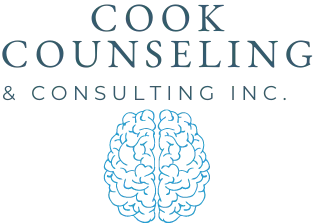Have you ever felt like you are drowning in a sea of stress? You are not alone. In fact, according to the American Psychological Association, approximately 60% of people in the United States are suffering from stress due to the current situation. Feeling overwhelmed triggers a pool of negative emotions, causing anxiety, anger, depression, and irritability. The good news here is that you can employ effective strategies to regain your composure and find inner peace when the world around you seems chaotic. Read on to learn four tips to reduce anxiety when feeling overwhelmed.
1. Go for a Walk
When stress is mounting and your thoughts are spiraling, sometimes the simplest solution can be the most effective. Walking, whether around your neighborhood, a nearby park, or even just around your office building, can work wonders for reducing anxiety.
Physical activity increases the release of endorphins, which are natural mood enhancers. Additionally, being outdoors exposes you to sunlight, which can help regulate your body’s production of serotonin, a neurotransmitter that contributes to feelings of happiness and well-being.
2. Practice Mindfulness
Mindfulness is the practice of being fully present and engaged in the current moment without judgment. When you’re overwhelmed, your mind might be racing with thoughts about the past or worries about the future. Mindfulness brings your attention back to the here and now, allowing you to let go of unnecessary stress. You can practice mindfulness through meditation, deep breathing exercises, or simply by focusing on your senses – the feeling of your breath, the sounds around you, the sensations in your body. By grounding yourself in the present, you can significantly reduce anxiety and regain a sense of control.
3. Relax Your Muscles
Physical tension often accompanies feelings of anxiety. Progressive Muscle Relaxation (PMR) is a technique that involves tensing and then relaxing different muscle groups in your body, one by one. This practice helps release physical tension and promotes a sense of relaxation. Begin by tensing the muscles in one part of your body, such as your fists, for about 5-10 seconds, then release and let the tension melt away. Move through each muscle group, from your toes to your head, experiencing the soothing sensation of relaxation. PMR can be a simple yet effective way to reduce both physical and mental tension.
4. Write Your Feelings
Sometimes, the act of putting your thoughts and emotions into words can be relieving. Grab a notebook or open a document on your computer and start writing. Let your thoughts flow freely without judgment or concern for grammar and structure. Write about what’s overwhelming you, how it makes you feel, and any potential solutions you’re considering. This practice allows you to externalize your thoughts and gain perspective on the situation. It can also help you identify patterns in your thinking that contribute to anxiety and find healthier ways to approach challenges.

Final Thoughts
The more in control you are of your emotions and thoughts, the better you will be able to address overwhelming and stressful situations in your life. In addition to practicing the above-mentioned tips to reduce anxiety, regular exercise, a healthy diet, and a productive hobby can help in reducing your stress levels significantly.
References
American Psychological Association. (2020). Stress in America 2020: A Mental Health Crisis. Retrieved from American Psychological Association.
https://www.apa.org/news/press/releases/stress/2020/report-october
Mayo Clinic. Relaxation Techniques: Try These Steps to Reduce Stress. Retrieved from Mayo Clinic.
Easter Michigan University DigitalCommons@EMU. (2010). Stress and Anxiety Reduction Due to Writing Diaries, Journals, E-Mails, and Weblogs. Retrieved from Easter Michigan University DigitalCommons@EMU.
https://commons.emich.edu/cgi/viewcontent.cgi?article=1217&context=honors

